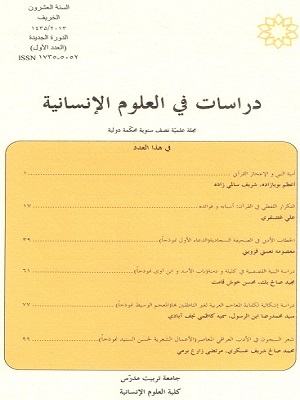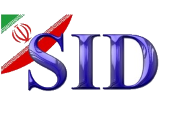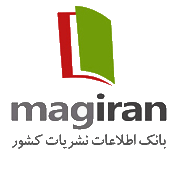Enter your email address
Submit
Write your message









































2383-4269 :pISSN
2538-2160 :eISSN
The Journal of Research in Humanities
- Editor-in-Chief: Khalil Parvini
- Manager-in-Charge: Faramarz Mirzaee
- Publisher: Tarbiat Modares University
- Journal Type: Scientific
- Publication Period: Quarterly
- Access Policy: Open
- Publication Format: Electronic
| Aim and scope
1- This journal was published with the aim of expanding research fields in various branches of humanities since 1989 as the only scientific journal with the title of The Journal of Research in Humanities in Arabic language.
2- According to the educational and research infrastructures of the university in applied, fundamental and developmental fields to promote the knowledge of humanities, it publishes research articles by domestic and foreign researchers. . |
| Open Access Policy: This Journal contents and the individual articles are freely available to readers without subscriptions or payments through the journal website or its permanent repositories. This open-access journal is published under the terms of the Creative Commons Attribution-NonCommercial 4.0 International License which permits Share (copy and redistribute the material in any medium or format) and Adapt (remix, transform, and build upon the material) under the Attribution-NonCommercial terms. |
Peer-Review Policy: The peer review process in TMU journals is double-blinded in which the reviewer’s name is unknown to the author and, vice versa |
| Licensing Policy :This Journal is licensed under the terms of the Creative Commons Attribution-NonCommercial "(CC BY-NC)" This license lets others remix, tweak, and build upon your work non-commercially, and although their new works must also acknowledge you and be non-commercial, they don’t have to license their derivative works on the same terms. View License Deed | View Legal Code |
Publishing Ethics: This journal follows all the terms and conditions of the Committee on Publication Ethics (COPE) and complies with the highest ethical standards in accordance with ethical laws. Authors may refer to the Committee on Publication Ethics’ International Standards for Authors for comprehensive information. |
| Authors fees : Dear authors/ paper contributors, you are being humbly informed that the journal charges 6,000,000 rials (In two steps: Reviewing and Publishing). |
| To receive iThenticate certificate, refer to the SAMIM NOOR Site at: https://www.samimnoor.ir/view/fa/Default/%d8%b5%d9%81%d8%ad%d9%87-%d8%a7%d8%b5%d9%84%db%8c |
| Self-archiving policies for authors Authors are permitted to post their work online in institutional/disciplinary repositories or on their own websites. Pre-print versions posted online should include a citation and link to the final published version in this Journal as soon as the issue is available; post-print versions (including the final publisher's PDF) should include a citation and link to the journal's website. Copyright Policy: Under open access license, authors retain ownership of the copyright for their content, but allow anyone to download, reuse, and reprint, modify, distribute, and/or copy the content as long as the original authors and source are cited properly. |
-
List
-
The Rights of the Terrorism Accused in the Light of Fair Trial Principles: A Comparative Study
-
The Adaptation Procedure of Women’s Social Citizenship Indicators in Iran
nasim alsadat mahbobishariyatpanahi, Abdolreza Eftekhari, LEILA Falahati
-
ISIS Violations of International Laws and the Possible Responsibility of the Syrian Government for Them
-
A Semiological Analysis of Iraqi Farmers’ Response to Growing Role of Oil Sector (Almada, Al Sabaah and Azzaman Newspapers as Research Samples)
-
Examining the identity of “Hybrids” and "Subaltern” in the Novel Granada Trilogy by Radwa Ashour Based on the Theories of Homi Bhabha and Spivak
-
Virtual Literature Problems: Features, Elements and Literary Genres
-
An Analysis of Stigma in the Novel “Chicago” of Alaa Al Aswany Based on the Theory of Erving Goffman
-
شعر تعلیمی؛ ویژگیها و زمان پیدایشش در ادبیات عرب
-
دیدگاههاى انتقادى میخائیل نعیمه
-
معانی حاشیه ای در پژوهشهای کهن و زبان شناسی نوین
-
The age of maturity in the words of the Quran, tradition and jurisprudents
-
پیچیدگى وابهام در شعر ابوتمام
-
کیفیات مخفف در قانون مجازات اردن
-
جواهری: زندگى، ذخیره فرهنگى و ویژگیهاى شعرى وى
-
آرا ونظریات ابن سلام درباره شعر و شاعر
-
طبیعت جاندار در شعر ابن رومی
-
پدیده تضمین در قرآن
-
تست دراسات
-
Arabic literary heritage...and the problems of reception
-
Coupled Analysis of Inflation and Unemployment
-
Monetary Policy, Oil Prices and the Nominal and Real Sectors of the Iraqi Economy: Patterns New Evidence from the TSVAR
sadiq ajel, Bahram Sahabi, Hassan Haidari, Abbas Asari Arani
-
Exploring the lived experience of gig workers from the perspective of service compensation with a Collaizi phenomenological approach
-
The role of discourse solidarity strategy in making communication and connection in social and political discourses of Amir Al- Momenin Ali
khosro janghorban, Amir hosain Rasoulnia, Rouhollah saiiadi nezhad
-
Al-Hajjaj's style in the correspondence between Imam Ali (PBUH) and Muawiyah (Pragmatic study)
Ali bagheri, Ali Akbar Noorsideh, Ali Zeighami, Reza Mirahmadi
-
Investigation and analysis of ironic tricks in Hariri officials
-
The inspiration of Buluqiya story from Me'raj event
-
Study of family training speech acts in Imam Sajjad`s discourse
If you have forgotten your password or username, please use the "password recovery" button. At the modern intelligent Yektaweb website, you can access to all TMU Press journals by a single account.
All prevoiusly sent articles to the old website will be reviewed and processed there and you should login to the old website to track your previously submitted articles.
In tha cases of facing with any technical faults or needing help to continue the journal processes, use the "send ticket" button to connect with Yektaweb SAMA Support Center. All questions will be answered asap.










